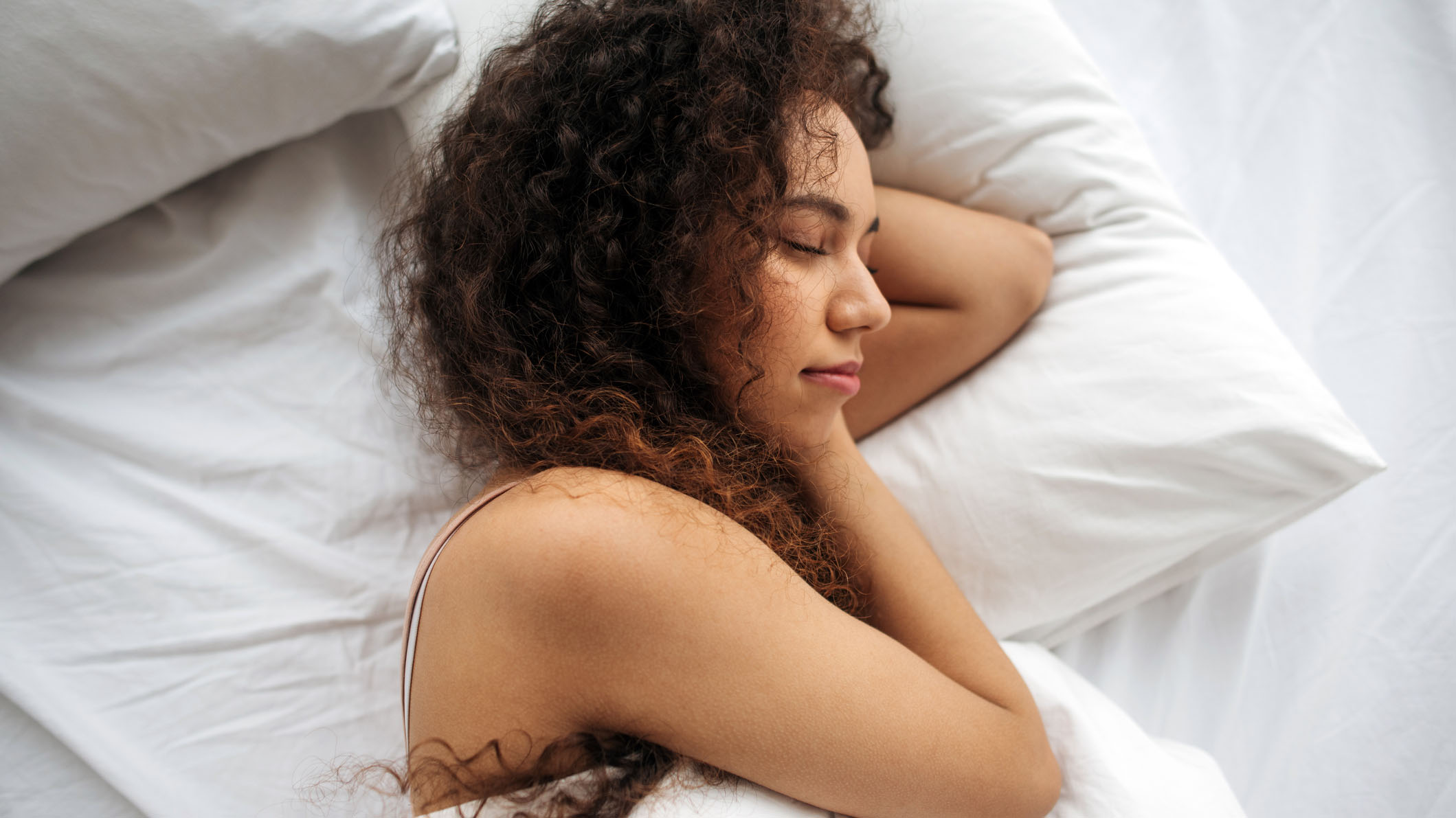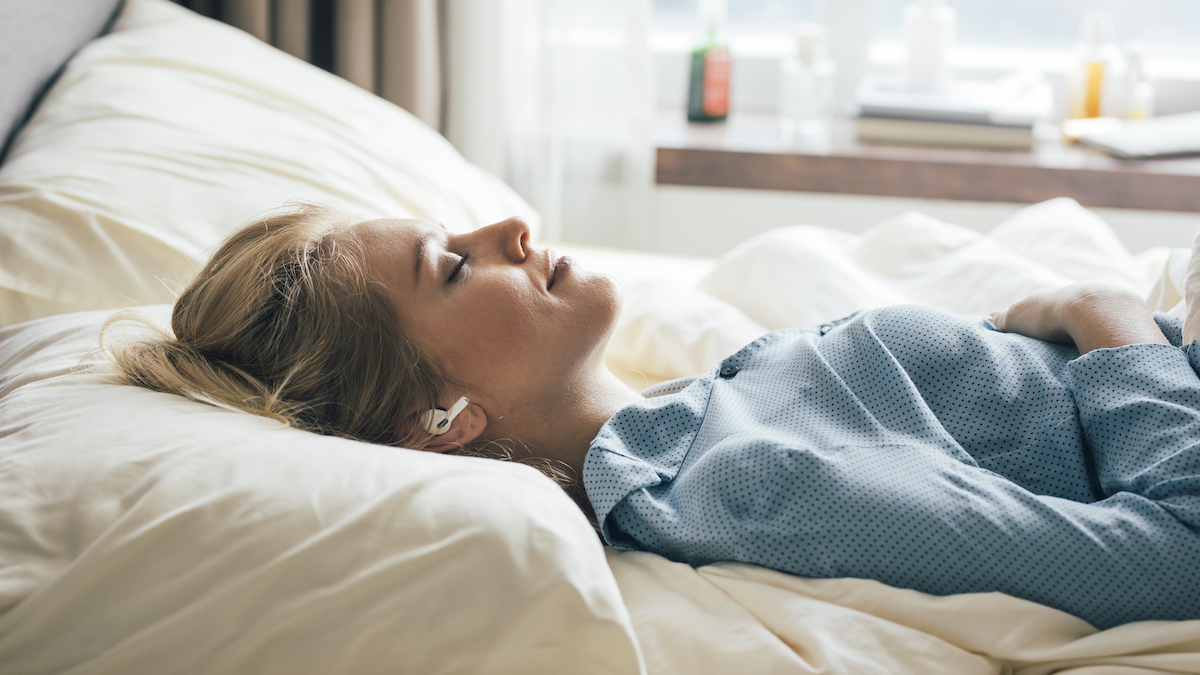5 things you should do before bed (and 3 you shouldn’t) to fall asleep fast
Bedtime routines shouldn’t be complicated – these dos and don’ts will help you fall asleep quickly and easily

If you want to fall asleep fast and enjoy a full night’s sleep, what you do before going to bed is far more important than what you do once you’re in bed. In fact, most people would benefit from a consistent bedtime routine that begins around 30 to 60 minutes before your head hits the pillow.
Bedtime routines for adults are a vital part of sleep hygiene, as they set the scene for sleeping and cue your brain that it's time to wind down. Stick to your routine for 30 days straight and you'll notice that you are falling asleep faster and easier.
While it’s normal to be unable to fall asleep within around five minutes of being in bed, falling asleep shouldn’t take any longer than 20 to 30 minutes. If it is taking you longer, follow these dos and don’ts before bedtime to give yourself the best chance to fall asleep fast. And if you think your bed may be the problem, check out our best mattress guide to find a mattress that suits your body, budget and sleep needs.
5 things to do before bed to fall asleep quickly and easily
1. Declutter your bedroom
If your bedroom is full of clutter, chances are you won't feel relaxed when you're in there. To make your bedroom calming and inviting, tidy away clutter, make your bed – even though you’ll soon be lying in it – and spritz a sleep spray or pillow mist containing the scent of relaxing lavender or camomile.
Tom's Guide's Sleep Editor and Certified Sleep Science Coach Claire Davies explains that your bedroom’s lighting and sound also have an effect on how fast you fall asleep (and stay asleep). “A quiet, dimly lit and clutter-free bedroom has an instant calming effect on the nervous system, which in turns helps you get into a mindset where you can fall asleep faster and more easily,” Davies explains. “Out of sight, out of mind is best when it comes to optimizing your bedroom for sleep.”
2. Ditch screens or switch to night mode
If you enjoy catching up with the latest shows or playing a video game before bed, then the blue light from TV, phone, laptop and other device screens may be interfering with the production of melatonin (the sleepy hormone), so it’s crucial to avoid it for at least one hour before bed to give melatonin levels a chance to rise.

3. Drink a cup of sleepy tea
Drinking a cup of sleepy herbal tea (look for calming ingredients such as valerian, camomile, spearmint, passionflower, and lavender) can help you unwind before bed. While sipping these warm herbal remedies can help people fall asleep fast, Davies points out that you shouldn’t be drinking them right before bed, otherwise they can lead to broken sleep. Here's why...
Get instant access to breaking news, the hottest reviews, great deals and helpful tips.
“While sleepy teas, such as lavender and valerian, are good natural sleep aids, they're also diuretics. Drinking a cup or two then jumping straight into bed will lead to a broken night’s sleep as you’ll be visiting the restroom more during the first few hours of sleep.”
However, not all teas have a sleepy effect, with some (such as green tea) containing caffeine. You can read more in our guide to sleep and green tea, where we ask an expert, 'Does green tea help you sleep?'.
4. Take a warm shower
To prepare or sleep, our body temperature naturally drops by a degree or two before bedtime. If we’re too hot or too cold, it will take us longer to fall asleep – and we may wake up more. To help lower your core temperature, Davies suggests having a warm (not hot) shower directly before getting into bed.
A warm shower to cool down sounds counterintuitive, but it actually prompts the body to shed heat to cool down, which in turn helps your core temperature regulate faster for sleep. “Also make sure your bedroom is set to the ideal temperature for sleeping, which is around 60 to 68 degrees Fahrenheit, depending on your health circumstances,” says Davies.
5. Practise a breathing exercise for sleep
One way to create a relaxing bedtime routine is to try some calming pre-sleep rituals, such as meditation or breathing exercises. If you’ve never meditated before and don’t know where to begin, you could try listening to a guided sleep meditation, which features a gentle voice providing simple steps to follow.

You can also try breathing exercises by checking out our guide on how to use The Military Sleep Method or our guide on how to use The 4 7 8 Sleep Method.
3 things you should never do before bed if you want to fall asleep fast
1. Consume caffeine or alcohol
While it has a reputation for making people conk out, alcohol is diuretic (i.e. it results in frequent trips to the restroom) so it will lead to broken sleep and also affects sleep quality.
So, even though you might be in bed for longer, you won’t be sleeping any better. Caffeine leads to broken sleep, too. It takes around eight to ten hours for caffeine’s stimulatory effect to be reduced by half (depending on how sensitive you are to caffeine) so its effects can last well into the first few hours of your sleep.
Remember, caffeine isn’t just found in cups of coffee and cans of soda or energy drinks; it can also be found in green tea, black tea, any food or drink containing chocolate, and even coffee-flavoured desserts such as ice cream and Tiramisu.
2. Eat a rich and heavy meal
There’s a reason why you find it so hard to doze off when you’re feeling full. When you’ve just eaten a heavy meal, your body has to focus on digesting all the food you’ve been eating, so it has no time to focus on helping you sleep. Swap the big portions for a light meal, and finish at least an hour before bed so your body will have time to digest.
3. Engage in heavy exercise before bedtime
While you should keep active throughout the day to get a good night’s sleep, you should leave the gym a few hours before bedtime otherwise it could interfere with sleep.
Some high intensity exercises raises cortisol levels in the body and interfere with melatonin production, which is the complete opposite of what you need do to fall asleep quickly and easily. If exercising helps you to unwind, try lighter, more relaxing exercises closer to bedtime such as our bedtime yoga routine.

Frances Daniels is a PPA-accredited journalist and Sleep Staff Writer at Tom's Guide with an MA in Magazine Journalism from Cardiff University. Her role includes covering mattress and sleep news and writing sleep product reviews and buyer's guides, including our Best Hybrid Mattress 2025 guide. She is interested in the relationship between sleep and health, interviewing an array of experts to create in-depth articles about topics such as nutrition, sleep disorders, sleep hygiene, and mattress care. She is also our specialist on mattress toppers — producing bed topper reviews and taking care of our Best Mattress Toppers 2025 guide — and leads content relating to fiberglass-free beds for a non-toxic sleep. Outside of Tom's Guide, she has written for Ideal Home and Marie Claire.
 Club Benefits
Club Benefits





